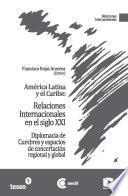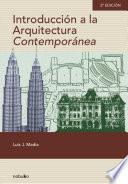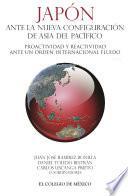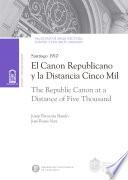América Latina y el Caribe: Relaciones Internacionales en el siglo XXI
Resumen del Libro

Frente a un nuevo contexto global con multiples actores y sin un multilateralismo efectivo, el sistema multilateral se encuentra hoy en dia en crisis. Esto se debe, en gran parte, a la crisis economico financiera que se vive desde el 2008; a menor atencion de los Estados Unidos hacia America Latina y otras regiones del mundo y su inercia unilateral; al bloqueo en el sistema de Naciones Unidas y a la baja legitimidad de instituciones emergentes que no logran dar gobernabilidad global. En Occidente se constatan cambios profundos e importantes, como lo es la profundizacion de las relaciones de America Latina, particularmente de America del Sur, con la region Asia Pacifico; la consolidacion de China como socio comercial estrategico relevante para America Latina desplazando a la Union Europea, entre otros. Ademas las revoluciones y cambios en los paises arabes y los cambios en Africa reorientan prioridades y tendencias en Europa que sin duda repercuten en America Latina. Esta publicacion recoge las ideas centrales expuestas por destacados academicos (as) acerca de los cambios globales y las distintas visiones de paises hegemonicos de la region y fuera de ella; asi como acerca de las diplomacias de Cumbres como la de APEC, CELAC, de las Americas y la Union Europea y las ideas expuestas en torno a temas emergentes transnacionales como lo son el cambio climatico, la seguridad, la gobernanza, la gobernabilidad y la integracion. A su vez, se analizan los temas de seguridad y defensa de cara a los nuevos desafios del siglo XXI y los actores relevantes en la politica exterior hemisferica, tales como Canada, los Estados Unidos, Mexico y Brasil. Finalmente, esta publicacion cuenta con una reflexion acerca de la vision sobre los cambios que se han dado que continuan ocurriendo en el Sistema Internacional. [Description in English] Latin America and the Caribbean: International Relations in the 21st Century Summit Diplomacy and Spaces of Regional and Global Agreement Faced with a new global context that has multiple actors but no effective multilateralism, the multilateral system is now in crisis. This is largely due to the economic and financial crisis underway since 2008; to the United States paying less attention to Latin America and other regions of the world and its unilateral inertia; and to the deadlock in the United Nations system and the reduced legitimacy of emerging institutions, which are unable to achieve global governability. In the West, profound and important changes are being witnessed, such as the deepening of relations between Latin America, particularly South America, and the Asia Pacific region, and China's consolidation as a significant strategic trading partner for Latin America, supplanting other partners like the European Union. In addition, the revolutions and transformations occurring in Arab countries and the changes taking place in Africa are reorienting priorities and trends in Europe that no doubt affect Latin America. This publication brings together the main ideas presented by prominent academics with regard to these global changes and the different visions of hegemonic countries within and beyond the region; and to summit diplomacies such as that of APEC, CELAC, the Americas and the EU; as well as the ideas presented in relation to emerging transnational issues such as climate change, security, governance, governability and integration. In turn, the issues of security and defense are analyzed in relation to the new challenges of the 21st century and the relevant actors within hemispheric foreign policy, including Canada, the United States, Mexico and Brazil. Lastly, this work contains a reflection on this view of the changes that continue to take place within the International System."
Ficha del Libro
Total de páginas 411
Autor:
- Francisco Rojas Aravena
Categoría:
Formatos Disponibles:
PDF, EPUB, MOBI
Descargar Libro
Valoración
4.1
32 Valoraciones Totales







